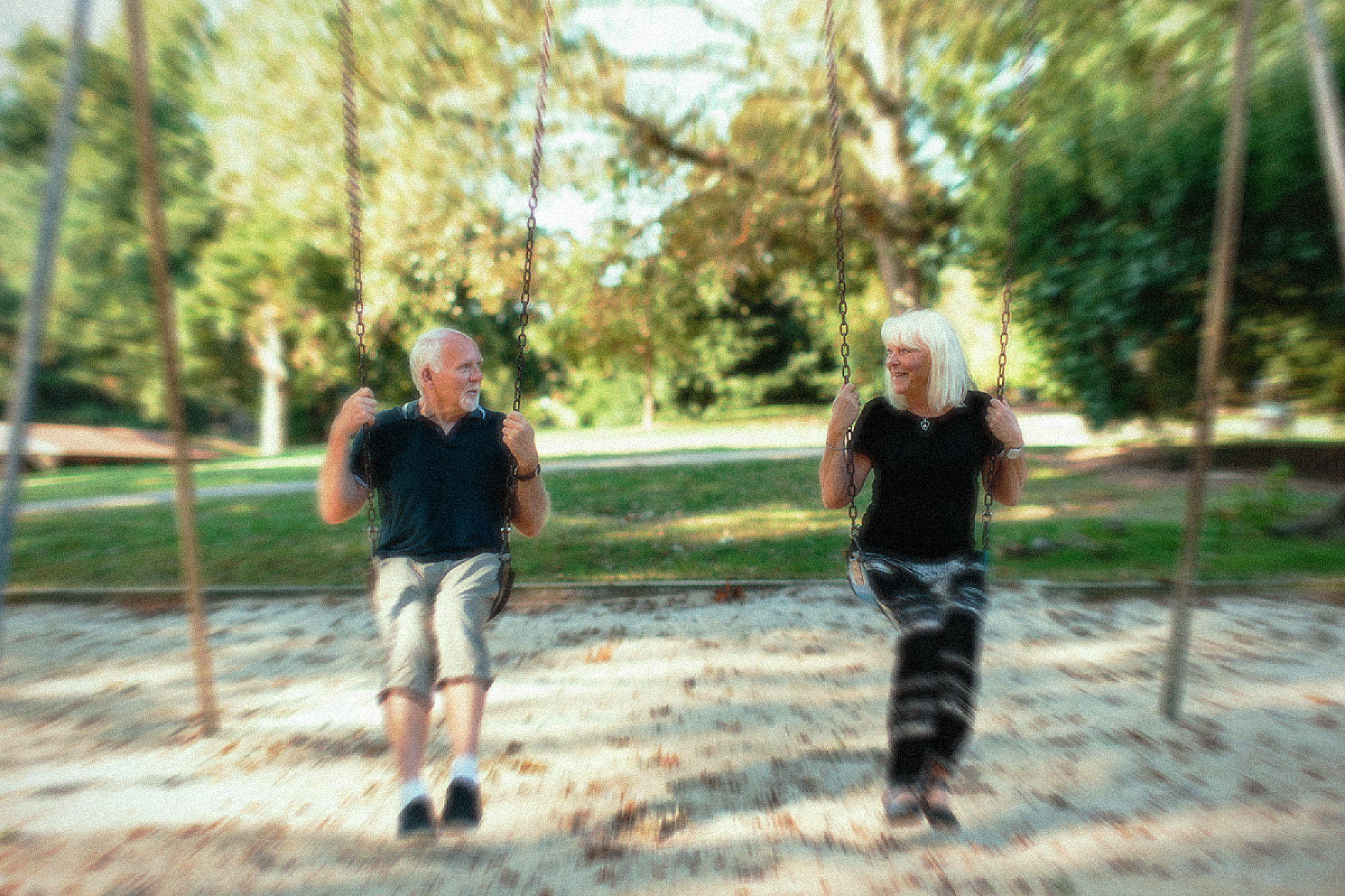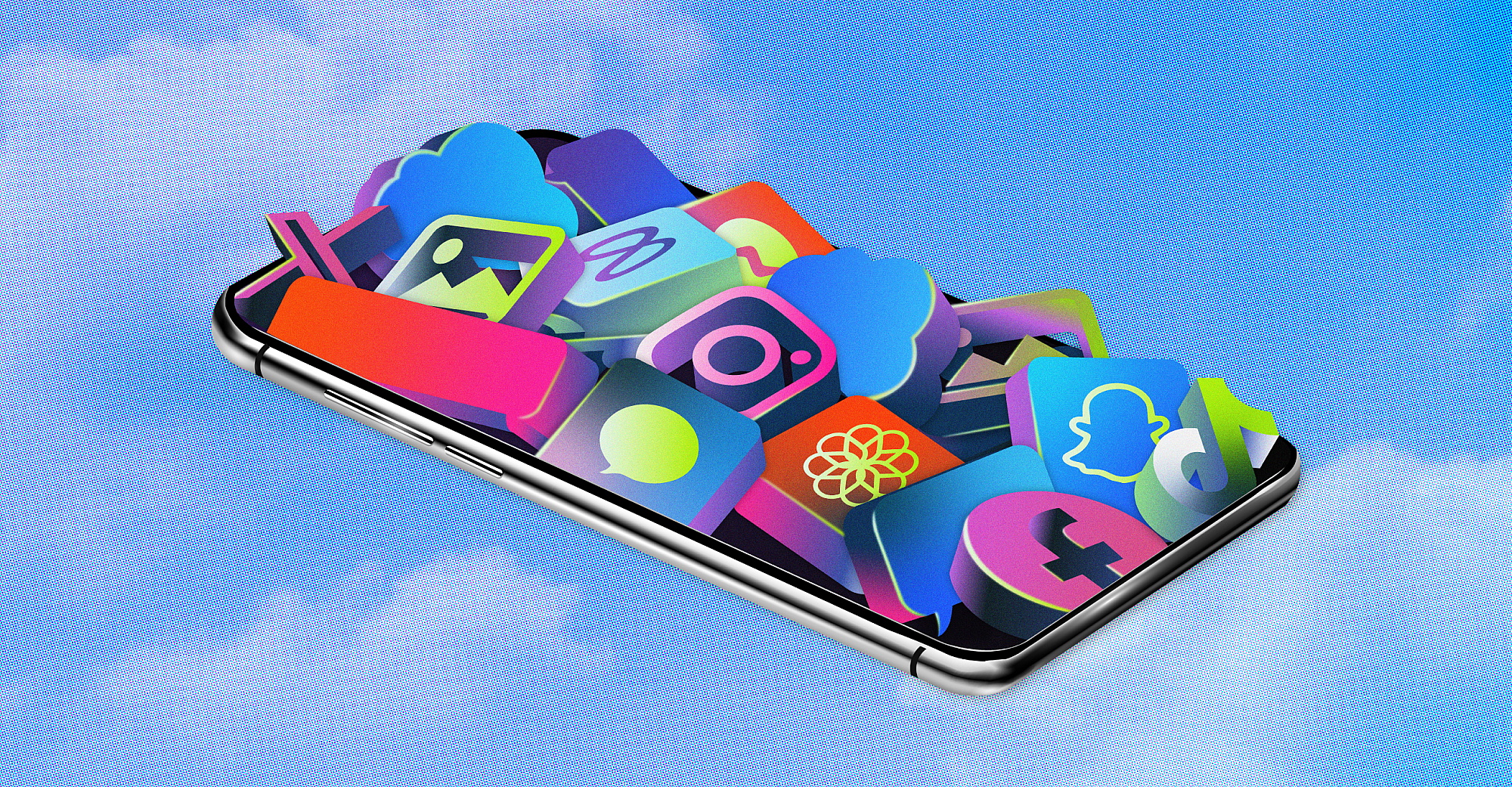
- Text Ranjani Gopalarathinam
- Design Jasmine Bae
Last month, Merriam-Webster proclaimed “authentic” to be the word of the year. One reason being that—in the era of the internet, AI and deepfakes—the demand for genuinely authentic content is at an all-time high. Believing that something we care about is authentic (rather than performative) drives our own sense of individuality. It’s a pretty deep subject, when you think about it—both philosophical and psychological. Moreover, the tension between the technological and human aspects of this perennial human search for individuality, and the cultural ephemera we use to help us define that, has blurred our understanding of what we believe to be totally unique to us.
In a recent New Yorker article, novelist Zadie Smith has a hilarious dialogue with her teenage self, wondering what teen Zadie might have done in the age of the internet: “What would my teenage me do with her misery now?... I imagine I would be having a very hard time deciding if what I actually willed was what I appeared to be willing. Do I really love my lengthy skin-care regime? Do I truly want to queue all night to purchase the latest iteration of my device? Does this social network genuinely make me feel happy and connected to others? Or did some unseen commercial entity decide all that for me?”
How closely connected is the culture we consume with our perception of our own authentic identity? Is that different now than it was 30 years ago? We wanted to find out, and polled D1A-ers across generations about how the culture they consume intersects with their own sense of individuality, and how the internet era has impacted them.
@peternugget they be gatekeeping everything for no reason 🤣 #pov #comedy #fyp ♬ original sound - peter nguyen
Search & Discovery, Then and Now
Growing up in the 1990s, music discovery was a personal quest. It meant studying every detail in a CD’s liner notes—the band members, producers, songwriters and collaborators. Which, if you loved that artist, led to constructing your own web of associations to build an entire world. For me, it was tracking down every single member of the Native Tongues collective, including every B-side, live recording and offshoot. This investigation created a feeling of intimacy with the artist, as if I were able to sit down with them in a private interview to discover the authentic source of their genius, and what made them so unique. Which, by association, made me unique.
The desire for individuality has remained a constant throughout the years, even as our methods of self-expression have evolved. In the 2000s, we began to curate our own virtual identities through social media profiles and playlists, but the underlying urge to showcase our uniqueness remained unchanged.
“Things felt a bit ‘exclusive’ in the 2000s, because [music] felt harder to find. Artists would [release music] under different aliases, the song would be vaguely named, and the only way you could share it is if you added it to your [MySpace] page or handed someone your iPod the next day,” says Parisse Dawkins, Sr. Creative Strategist.
Thanks to strong and active online communities, these networks became hotbeds for discovering something fresh outside of mainstream media. “I remember feeling really unique for using [MySpace and Last.fm] to find super low-key stuff that I liked rather than just watching MTV or listening to the radio,” says Alexis Castro, Creative Strategist.
Today, the process of discovery has seemingly flattened out, with streaming services learning our tastes and preferences based on past behavior. But fresh discoveries are still possible—even when an algorithm is in play.
“The stuff I find, like music and movies that the people around me are unaware of, doesn't find me because of a specific trend or marketing,” says Nick Hartland, Senior Creative Strategist. “It's because of following good creators/curators and the TikTok and Spotify algorithms learning my taste.”
@greekuniversity This beat us everything, and my kids will know 90's hip hop so they know good music. This might need to be the walk out on stage music when I'm working with #fraternity and #sorority ♬ original sound - Bryan
Invading Our Sense of Individuality
In the 2000s, when hip-hop culture went mainstream, it was a bitter pill for me to swallow. Who were all of these impostors, encroaching on something I considered to be the very foundation of my hard-won and well-researched identity? Let’s just say I had some feelings.
I am constantly looking to discover new things, and while it feels like I am first to buy a brand or jump on a trend, discovery is often tied to seeing something in my scroll, so I know I am not alone or the only person seeing it.
- Rob Longert, D1A Managing Partner
About his own journey of discovery, Pulitzer Prize-winning writer and academic Hua Hsu recently observed, “It’s interesting to see these struggles and attempts to define oneself trickle down to how I remember that time. It’s intoxicating to feel like you’ve discovered out-of-the-way things, and when other people move in you feel, ‘I’ve got to move somewhere else.’ Some people eventually give that up, but other people say, ‘If pants are getting skinnier, I’m gonna go big.’”
In the era of social media, some maintain that the intimacy with a subject that helps build our sense of individuality is next to impossible to achieve, especially when you’re servicing millions of fans with a single post.
“Over the past few years, while social media and TikTok usage became even more prominent, I've noticed a huge influx of people who look like hardcore kids or believe they are a part of the community,” says Associate Creative Strategist Izzi Sneider. “A part of me feels incredibly jaded and angry that something I associate closely to my central identity has become a fleeting trend."
What has changed is our awareness that often what we’re unearthing isn’t a hidden gem and, in fact, we’re probably finding it because it’s already on other people’s radars.
“I am constantly looking to discover new things, and while it feels like I am first to buy a brand or jump on a trend, discovery is often tied to seeing something in my scroll, so I know I am not alone or the only person seeing it,” says Rob Longert, Managing Partner.
@gracetutty the millennials get war flashbacks from low rise jeans i swear 😭 #lowwaisted #highrisejeans #lowwaistedpants #highwaisted #millennial #genz #genzvsmillenial #genzvsmillennials #millenialvsgenz ♬ original sound - bobsburgersvids
The Era of Influence
The internet has made discovery around our interests very accessible. You might say that this “deconstruction of associations”—breaking down every connection to a subject in a hyper granular way—requires very little effort. Simply check the footnotes on any Wikipedia article for a deeper dive. What’s more, ChatGPT and other Open AI will even proffer an opinion on the subject. With the power of marketing, those associations have also become multifaceted and more numerous, making them feel difficult to invest a lot of ourselves into.
“When you don't have to work for it, it's easier to pick something up and drop it quickly, [especially] when you haven't invested time and energy,” says Tim Clarke, Group SVP of Story.
Longert has noticed a shift in cultural discovery from a more proactive stance to a more passive one. “Being online all the time makes us a bit lazy, which is why it's important to seek new inspiration out vs. having it served up. That's a shift in culture for the next generation. Have they ever had to seek anything out?”
I'm really into climate action. I'm able to become a sort of expert on it through content and media that I find online, and that impacts my feeling of uniqueness
- Jesse Hicks, VP of Story at D1A
The internet has allowed us to express our individuality in a way that was previously difficult or impossible. It has also helped to form meaningful connections and find shared experiences with others that we may not have otherwise had, which has positively impacted our ability to build a sense of self and community.
“Because of the internet, my taste is a bit more unique than it would have been in an analog world and it would have theoretically aligned more closely with friends around me (even though it still does) without the internet. Or radio and music charts, perhaps. That's actually a really cool thing to think about,” explains Hartland.
For Clarke, being receptive is key to building up a sense of identity. “When you see people sharing their deep passion for something and more and more people engaging [with it], it feels like you would have to be deliberately obstinate not to at least give it a try,” he says. “You just have to [have] the balance and confidence to remain open-minded without letting your own taste be overwhelmed by popular opinion.”
Of course, a well-curated or like-minded source can make all the difference. “[The internet] provides a massive amount of information around cultural tastes, allowing me to take deep dives and build both knowledge and identity in those tastes. For instance, I'm really into climate action. I'm able to become a sort of expert on it through content and media that I find online, and that impacts my feeling of uniqueness,” says Jesse Hicks, VP of Story at D1A.
Influence is also connected to the choices we make around what to consume. As Dawkins says, “Everyone's opinions are shared in comment sections or blogs or newsletters, and it's easy to be discouraged from liking something just because other people online aren't into it or are bashing it for some reason."
And the discourse on what is “cool” can sometimes be suffocating. “I feel like in the past two or three years, I've gotten trapped in a loop where I harshly compare my style to what I see on TikTok and feel a pressure to adopt new trends that are deemed ‘cool’,” Sneider explains. “The amount of low-rise oversized pants I've bought and never worn because I feel more comfortable in cropped high-waisted pants is insane."
Most of the D1Aers we spoke with feel that it is possible to maintain an authentic connection to culture in today’s digital landscape despite how complex search, discovery and a multitude of influences on our choices have become. Therefore, our individuality remains intact—at least within ourselves. “You just connect with something because you like it. How easy is that?” says Hartland.
“I believe that if we want to maintain some sense of unfiltered connections in today's digital landscape, we need to be analog sometimes, seek out new things that are offline and look beyond our scrolls for inspiration,” Longert adds. “Culture isn't just what's happening in our social feeds."
Based on this survey, we can agree. Culture flourishes with every action and conversation we have in real life—when we’re able to get offline to discover and debate the things that move us, make us think, and inspire us to be present amidst the cacophony of it all.
@sheisinami Ooof that hurted #bpd #ColorCustomizer ♬ original sound - Mr Pushup



